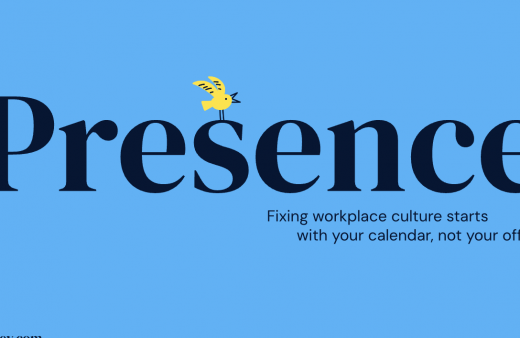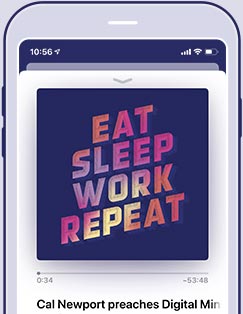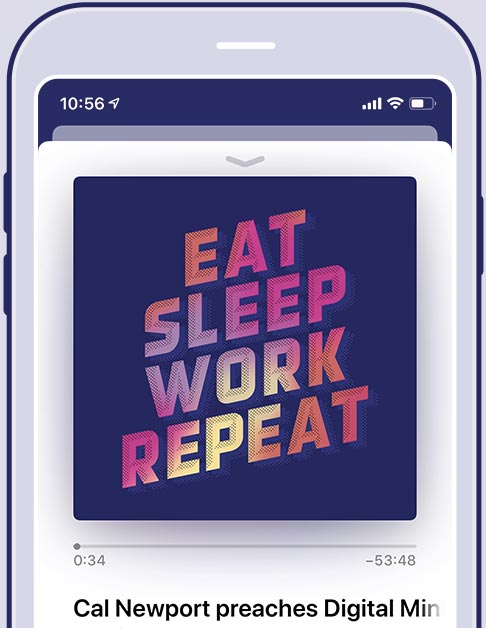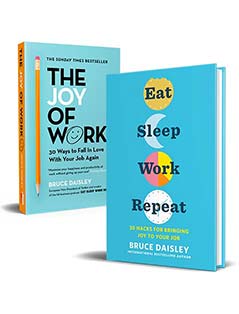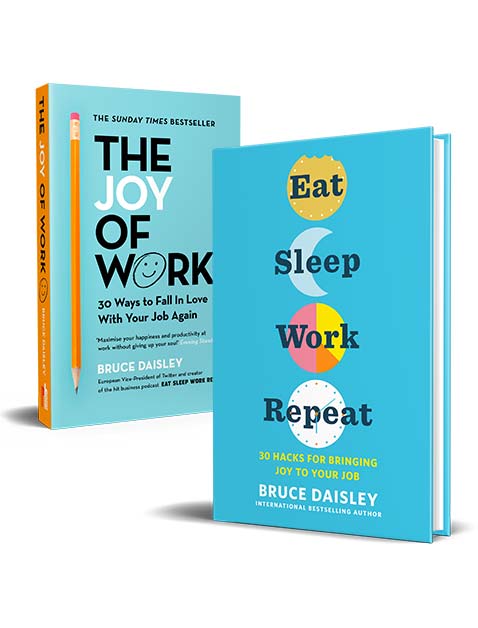Radical Honesty
Kim Scott is the co-Founder of Candor, Inc and the author of Radical Candor: Be a Kickass Boss Without Losing Your Humanity which is out in March 2017..png)
Kim’s view is that we spend too long at work not speaking frankly to each other. She’s convinced that straight talking could solve a lot of problems.
Follow Kim @kimballscott
Full transcript
I wonder if you could introduce us to the idea of radical candor and and how you found yourself creating these concepts.
KIM SCOTT: Radical Candour is a very simple idea really. It sort of happens at the intersection of caring personally about the people who you are working with but also being willing to challenge them so that they can fix problems or do more of what’s good.
For me the real pivotal moment in my career happened when I had this guy – we’ll call him Bob – who was working for me. This was back in a start up long ago and far away – in 2000 in New York – and I really liked Bob a lot. He was funny. He was charming. He was always willing to call nonsense when when we were at one of those leadership conferences and we were being asked to do a get to know you game that was taking forever. And everybody hated it but nobody dared say it. Bob said ‘I have a good idea, let’s do something much faster. Let’s just go around the table and confess what candy our parents used when potty training us’. Weird but fast. Even weirder everybody remembered. For me it was Hershey’s kisses. And then for the next ten months every time there was a tense moment in a meeting Bob would whip out just the right piece of candy for the right person at the right moment. So anyway funny, quirky, weird. Not everybody finds this as amusing as I did. But we all loved Bob. That was why we love Bob. It was just one problem with Bob.
The problem with Bob was that he was doing absolutely terrible sub-par work. And because we all liked him nobody told him, especially not me. And so when he would hand something in, instead of saying ‘this is not nearly good enough’. I would say ‘oh Bob you are so smart. I know this is a good start but I think you can make it a little better’. I was basically giving him praise that was utterly meaningless for all practical intents and purposes. And I wasn’t telling him when his work wasn’t nearly good enough. After about ten months of this the inevitable happened. I realised that if I didn’t fire Bob I was going to lose half my team.
And so I sat down to have a conversation with Bob that would have been much easier if I had had it ten months ago. It was incredibly hard because I was firing him. He looked at me and the end. He sort of pushed his chair back, looked me right in the eye and he said ‘why didn’t you tell me?’ And that question is rolling around in my head with no very good answer other than I totally screwed up. He said ‘why didn’t anyone tell me?’ I thought you all cared about me. And in that moment I realised that I had failed Bob in six really important ways. I had failed to ask him for praise and criticism, to ask him for guidance of me. Maybe I was doing something that was driving him so crazy he had to toke up in the bathroom. I don’t know I never will because I never asked him. And worse I failed to give him praise that was meaningful my praise for him was really just a head sake.
And I failed to give him the kind of criticism that he would that would let him know when his work wasn’t nearly good enough. And the worst of all I think I had failed to create a culture in which everyone would tell Bob what was really good and when he was going off the rails. And because I had failed Bob I was now having to fire him. That was a terrible moment. Probably the worst moment of my career. All I could do at that moment was promise myself in a very solemn way that I would never make that mistake again. And that was really the beginning of my thinking about how to prevent myself from making that mistake and how to help the people who I worked with avoid making that mistake. Avoid being in that very painful situation. And happily a couple of years later I took a job at Google and got to see a much better or happier example of Radical Candour done right. And this was this was when I was working for Sheryl Sandberg.
I had joined Google. I was leading the Ad Sense online sales and operation team and I had to give a presentation to Larry and Sergey the founders and to Eric Schmidt. I walked into the room and there’s Larry in this sort of bright neon blue spandex parted toed shoes on a elliptical trainer in the back of a room. And Eric is so deep in his email it’s like his brain has melded with his machine. And so I wondered how in the world am I going to get their attention. What am I supposed to do here? And I’m like any normal person in that situation I felt a little bit nervous. But then when I started to talk and described how many new customers we had added Sergey comes to a screeching halt on the elliptical trainer and Eric’s head snapped up out of his computer. And he says what resources you need? You need more engineers? What do you need to keep this good thing going? And so I felt like the presentation had gone pretty well. In fact I felt like a genius. And as I was walking out of the room I walked past Cheryl, my boss. I was expecting a high five or a pat on the back. And instead she said why don’t you walk back to my office with me. So now I’m thinking ‘oh boy I screwed something up and I really want to know what it is’.
An Sheryl started out by telling me what had gone well and it wasn’t the feedback sandwich, insincere praise. There were really a few things that that I had done well that I didn’t know that I didn’t even know were good. So it was useful but of course what I really wanted to hear was what I had done wrong not what had gone well. And eventually she said ‘you know you said ‘um’ a lot in there. Were you aware of it?’ I breathed a huge sigh of relief because now I felt like it was not a big deal. I made a brush off gesture with my hand if all I had done wrong with that on lot. Nothing was really too bad. And I saw a brush off gesture with my hand and I said ‘yeah I know it’s kind of a verbal tick and it’s no big deal really’. And then Cheryl said ‘this is really great speech coach I know and Google would pay for it. Would you like an introduction?’ And I sort of made that brush off gesture with my hand thinking I said ‘no I’m busy. Did you hear about all those customers. I don’t have time to go see a coach’. And she stops and she looks at me right in the eye and she said ‘I can see when you make that brushoff gesture with your hands that I’m going I have to be a lot more direct with you when you um every third word, it makes you sound unsure of what you’re saying and kind of stupid’.
Now she has my full attention. Stupidity was a cardinal sin at Google. And and so a lot of people would have said that it was mean to tell me that I sounded stupid. But in fact it was the kindest thing that could possibly have done for me in that moment. And if I had been a different kind of person if I hadn’t been making that brush off gesture with my hand she wouldn’t have said it. She wouldn’t have needed to say it. But she could tell from my body language that she needed to push harder to get through to me.
She tested you basically, she tested the ground: ‘this is someone who is maybe less responsive.
KIM SCOTT: Exactly. Bruce you are a good listener. I’m sure she had been talking to you she wouldn’t have had to tell you that you sounded stupid. You would have said ‘oh yes of course I’d love to see that speech coach’. But I’m a little bit stubborn. So she had to work hard to get through to me and she was willing to do it. And because she was willing to do it I did go see that speech coach. And I learned that she was not exaggerating. I really did say um every 3rd word. And this was news to me and big news because I had been giving presentations for my whole career and I wasn’t so early in my career at that point. It was as though I had been for 15 years walking around with my fly down and nobody until I met Sheryl and nobody had done me the courtesy of telling me my fly was down right. And I could fix it if I knew it was a problem but nobody had told me it was a problem. And that really got me thinking again about the Bob story and about what was it that Sheryl had done that made it seem so easy for her to tell me what I needed to hear and why had nobody else done it.
Because on your podcast – and I presume in your forthcoming book – you say that there’s this lesson we’ve all learned which is if you don’t have anything nice to say then don’t say. Is that what prevents us being honest and candid with each other?
KIM SCOTT: Yes I think that’s a huge part of it. I think there are two things that Sheryl did that were easy for her but that are hard for most of us. The first thing she did was to show that she cared personally. And one of her mantras was bring your whole self to work. For example she did this not just for me but for for everyone who ever worked directly for her. For example when I live in California from New York and I didn’t know anybody here. She invited me to join her book club. She knew that I loved novels and she knew that I loved books and she knew I didn’t have many friends and she set me up. When I had a family member who was ill she said go home, do everything you need to do and don’t take it as vacation time we’ve got you covered here. Your family comes first. And this sort of thing she consistently did for everyone who worked for her. She showed us all that she cared about us not just as professionals but as human beings. And that was really important. And then the second thing she did… and the question is why is caring personally so rare why would anybody fall down on that dimension? Sheryl is a wonderful person that she certainly is not the only one. Almost everybody is a caring human being.
I think this thing that trips a lot of us up on that ‘care personally’ dimension is that when we’re 18, 19, 20 when we’re getting our first job and we’re right at that moment when our egos are most fragile but our personas are beginning to solidify for far too many people that means we leave your humanity, leave the very best part of yourself, at home and come to work like some kind of robot. Never a recipe for success. One of the really important things that she did was (not that she was unprofessional ever) but to move beyond being only professional. So that’s the first dimension and then the second dimension is exactly what you were talking about. It’s that willingness to challenge others directly. And I think that we fall down on that dimension because when we’re 18 months old – so this starts much earlier and therefore is a harder thing to fix – we’re told ‘if you don’t have anything nice to say don’t say it at all’ or some version of that. People I’ve managed in virtually every culture in the world have some version of that saying that parents tell their kids. It’s no wonder that parents tell their kids that because kids really can come out with some zingers. But now when you become a leader it’s your job to say it and undoing training that’s beaten in our head since we’ve learned to speak is hard.
How do you teach people this. One version of this, when I was doing management training, they used to call this the ‘shit sandwich’. You tell people something nice then you tell them the really spiky thing and then you tell something else nice. But it seems more sophisticated than that. It’s just an open transparent dialogue rather than smuggling bad things through.
KIM SCOTT: Exactly right. Nobody likes a shit sandwich. And I think it’s really important to realise that both praise and criticism and when you’re doing both of those things and feedback consists of both praise and criticism – and more praise than criticism because you’re not firing your whole team every day – they’re doing more good stuff than bad stuff. But both praise and criticism should show you care. Criticism can show you care just as much as praise. So don’t conflate praise and caring personally. Both praise and criticism should do two things. They should show that you care and they should challenge people directly. Now challenging people directly with praise is a little confusing at first. But the purpose of praise is to show people what to do more of. The show purpose of criticism is to show them how to do better and so both praise and criticism should be radically candid. And I think the way that I try to teach people to avoid doing what I did with Bob is to name that quadrant very clearly right to make what happens there very clearly. That’s what I call Ruinous Empathy. I liked Bob so much that I couldn’t bear to hurt his feelings. Therefore I wound up firing him. Not so nice after all. So think hard about the difference between being kind and quote unquote nice. That I think will help guide you. I think another saying you know I would say maybe I’m getting myself a little bit too much credit in the Bob story. It wasn’t merely that I was trying to be nice. Everyone liked Bob, I also didn’t want everybody like the rest of the team to think I was a jerk. So it wasn’t just Bob’s feelings that I was worried about. That would put me simply in the Ruinous Empathy quadrant. But it was also my own reputation that I was worried about. And so I was manipulatively insincere in that case. And in the case where you neither show you care nor challenge somebody that’s what I call manipulative insincerity. I use these very strong term not because I want people to judge themselves or each other harshly, but just to be aware when you’re in a conversation of which direction you’re headed and to use those strong terms to move you towards Radical Candour. Radical Candour does take a lot of emotional energy and it takes courage frankly. And so sometimes it’s helpful to be afraid of what’s going on in the other quadrant.
It’s fascinating isn’t because I guess so much of management – especially you know if you believe the notion of expertise coming after 10,000 hours – so much of management is in an amateur learning stage. And so consequently a lot of managers prioritise being popular over being successful or communicating properly. So consequently the notion of being a jerk boss is such a vivid pitfall that we’re scared about often we don’t say the thing that everyone knows about George or we don’t address the thing everyone knows about Philippa do we. We tend to skirt around it hoping that the issue will go away.
KIM SCOTT: Yes I think you really said it better than I could have said it. The thing that so many managers, new managers but also super experienced successful managers, fear is what I call Obnoxious Aggression. They fear looking like a jerk. They fear that if they criticise they’re not going to show that they care personally. And in fact it is of course difficult to show that you care personally when you’re offering somebody criticism. And so they don’t do it. But that actually makes them ruinously empathetic. So the managers fear being in the Obnoxious Aggression quadrant whereas their employees fear their boss isgoing to be in Ruinous Empathy quadrant. Most employees know that in order to grow they need to know when they’re making mistakes they want to be told. I mean nobody wants to make a mistake but if you do make a mistake you want to know about it so you can fix it. It’s very interesting dynamic and this is one of the reasons why this very simple two by two that I came up with. Imagine a vertical line is Care Personally. The horizontal line is Challenge Directly. And when you think about what happens when you do both. That’s Radical Candor. When you challenge but fail to show that you care that’s Obnoxious Aggression. That’s what most managers fear. But where most managers actually are is showing they care but not challenging directly and that’s what I call Ruinous Empathy. Occasionally because managers so fear developing a reputation for obnoxious aggression they’ll actually move to the worst quadrant of all Manipulative Insincerity. And that obviously is not a good place from which to build good reputation or a good team or good business.
And can everyone in the business do this? This doesn’t necessarily feel like it just has to be top down. This presumably can be a culture that everyone should be doing.
KIM SCOTT: You’re absolutely correct. It’s up down and sideways. Everybody can do it. I think that if you’re if you’re the boss it’s your moral obligation to do it. A friend of mine, he got an email from a guy that used to work for him an engineer who used to work for him, who had a reputation as sort of a prima donna. He’s very picky about what he worked on and in a start-up you just can’t have that kind of attitude. People have got to be willing to roll up their sleeves and do whatever. And my friend was reluctant to tell him directly. And he started to send an email off to the recruiting team to crush the guy off politely and then he realised that was not being radically candid. And so he picked up the phone and he called the guy and he told them exactly why I didn’t want to interview him. And he was dreading the conversation. He thought the guy was going to blow up at him or yell at him. And when he finished telling the guy said thank you so much. What you just told me was even more valuable than giving me a job. Something’s been holding me back and nobody’s told me what it was. And now I know. So it’s so simple. It often is much easier. It’s often not always. I won’t promise always but it is often received much better than you expect it to be.
Yeah I mean I remember one of my fondest bosses ever was very direct – in a positive and negative way. But in addition I chatted to Patty McCord who wrote the Netflix culture document a couple of weeks ago and she was talking about how the more honest they were with people the better people knew where they stood. And the people thrived knowing where they stood.
KIM SCOTT Yes. You develop a great relationship when you’re radically candid when you’re something else the relationship suffers. Relationships are hard and it does take emotional energy to be radically candid.





